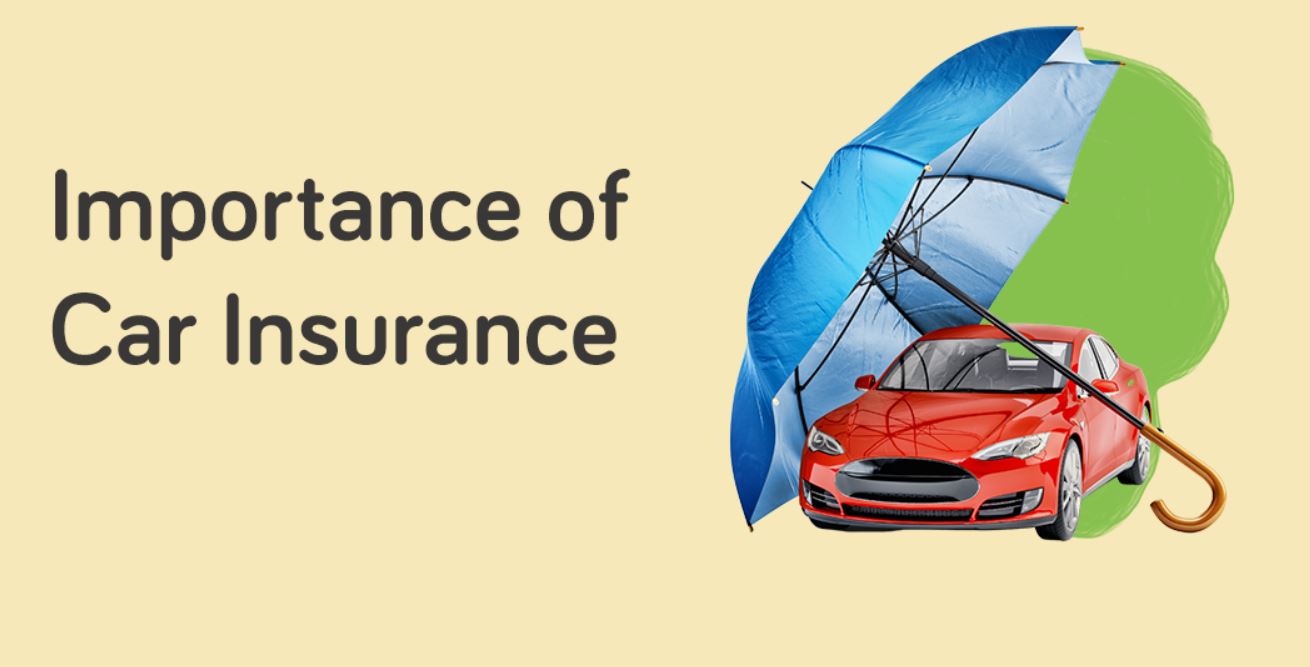The Importance of Car Insurance;-When you get behind the wheel of a car, you’re not just controlling a machine—you’re taking on a responsibility. Car insurance plays a crucial role in ensuring your safety, financial protection, and peace of mind while driving. Whether you are a seasoned driver or someone just starting to hit the road, understanding the importance of car insurance is vital. In this blog, we’ll explore why car insurance is essential, how it protects you, and why it’s a legal necessity in many places.
1. Protection Against Financial Loss
The primary reason to have car insurance is to protect yourself from financial loss in the event of an accident, theft, or natural disaster. Without car insurance, you could be left to pay for repairs, medical bills, or even legal fees out of pocket, which can be financially devastating.
Types of Coverage:
- Liability Insurance: This covers the cost of damage you cause to others, whether it’s property damage or bodily injury. It’s required by law in most regions.
- Collision Insurance: Covers damages to your own vehicle after a collision with another car or object.
- Comprehensive Insurance: This covers damages to your car that aren’t caused by a collision, such as theft, vandalism, or damage from natural disasters.
- Uninsured/Underinsured Motorist Coverage: Protects you if you’re in an accident with someone who doesn’t have enough insurance.
2. Legal Requirement
In many countries and states, car insurance isn’t just a good idea—it’s the law. Driving without insurance can lead to fines, license suspension, and even imprisonment in some areas. By law, all drivers are required to carry at least a minimum level of liability coverage. This ensures that if you cause an accident, you can cover the costs of any damage you cause, protecting both you and other drivers on the road.
3. Protection for Your Passengers
Car insurance doesn’t just protect you—it also protects your passengers. Medical expenses resulting from an accident can add up quickly. If you’re involved in a car crash and the injuries are severe, medical costs can be overwhelming. Car insurance policies often include personal injury protection (PIP) or medical payments coverage, which helps cover the medical bills for you and your passengers, regardless of who’s at fault.
4. Protects You from Liability
In the unfortunate event that you cause an accident, you could be held responsible for the damage or injuries sustained by the other driver, passengers, or pedestrians. Without insurance, these costs could bankrupt you. Car insurance provides liability protection, covering the cost of the damages and legal fees up to the limits of your policy.
5. Protecting Your Vehicle from Theft and Vandalism
Car insurance can also protect your vehicle from theft or vandalism. Comprehensive coverage includes protection in the event your car is stolen, damaged by weather conditions, or vandalized. With the right insurance, you can get reimbursed for the value of your car (or the cost of repairs) after an incident like this, minimizing the financial loss.
6. Peace of Mind
Lastly, car insurance offers peace of mind. Knowing that you’re protected against accidents, theft, and damage allows you to drive with confidence. Insurance helps mitigate the stress and anxiety associated with the financial impact of potential incidents, making it easier for you to focus on the road and stay safe.
FAQs
1. What is the minimum amount of car insurance I need?
The minimum required coverage varies by state or country. In many places, drivers must carry at least liability insurance, which covers damage to others if you’re at fault. However, it’s often recommended to have more coverage, such as collision or comprehensive insurance, to protect yourself and your vehicle.
2. Can I drive a car without insurance?
In most places, driving without insurance is illegal. You can face penalties such as fines, license suspension, or even imprisonment. It’s essential to have at least the minimum required insurance before driving on the road.
3. Does car insurance cover me if someone else is driving my car?
Typically, car insurance follows the car, not the driver. So if someone else drives your car and gets into an accident, your car insurance policy may cover the damages, assuming they have permission to use your vehicle. However, if the driver is not listed on your policy, it could affect your coverage.
4. How does my driving record affect my car insurance premiums?
Your driving record plays a significant role in determining how much you pay for car insurance. If you have a history of accidents or traffic violations, your premiums will likely be higher. On the other hand, a clean driving record can help lower your rates.
5. Is car insurance expensive?
The cost of car insurance depends on several factors, including your age, driving record, the type of car you drive, and the coverage options you select. While car insurance can seem costly, it’s important to view it as an investment in your safety and financial protection.
6. Can I reduce my car insurance premiums?
Yes, there are several ways to lower your car insurance premiums, such as:
- Bundling your car insurance with other types of insurance (like home insurance).
- Maintaining a clean driving record.
- Choosing a higher deductible.
- Installing safety features or anti-theft devices in your car.
- Taking a defensive driving course.
7. What happens if I don’t make a car insurance payment?
If you miss a car insurance payment, your insurer may cancel your policy. This could leave you uninsured and possibly in violation of the law. It’s essential to make your payments on time to maintain continuous coverage and avoid lapses.
Conclusion
Car insurance is more than just a legal requirement—it’s an essential part of being a responsible driver. Whether you’re protecting yourself, your passengers, or others on the road, car insurance helps ensure that you’re financially secure and prepared for unexpected events. Be sure to assess your needs and shop around for the best coverage that offers the protection you need at a price you can afford. Stay safe, stay insured!



